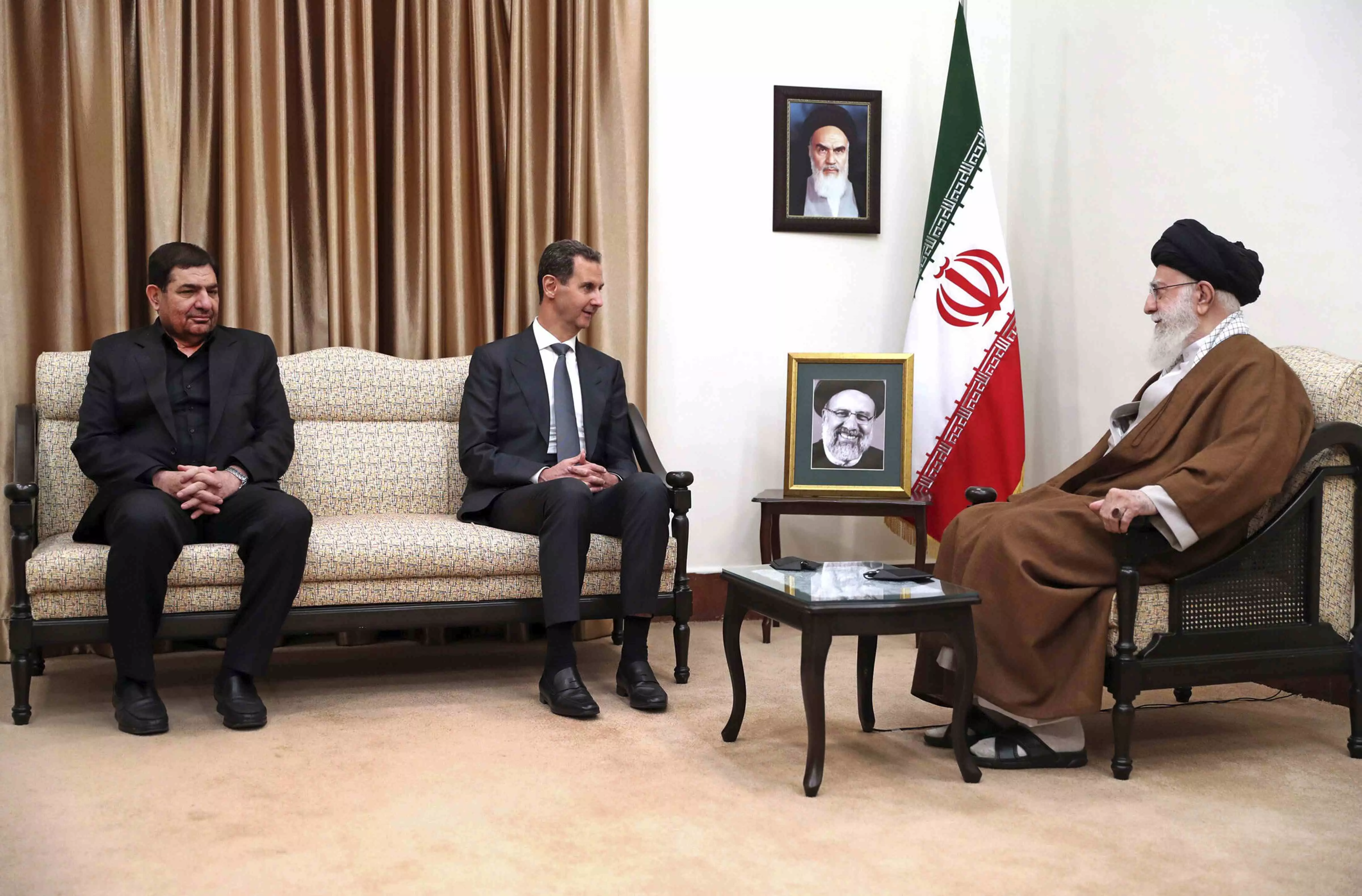Transition through a turmoil
Following Ebrahim Raisi’s death in a helicopter crash, amid peaking tensions with Israel and ongoing conflict in Gaza, the task ahead for the new president will be onerous

The Iranian helicopter crash on May 19, killing Iranian President Ebrahim Raisi, Foreign Minister Hossein Amir Abdollahian, and several other officials, has jolted Iran in huge measure. The timing of the tragedy has come at a very crucial juncture, as Iran’s tense relations with Israel are at their peak, and the seven-month-plus conflict in Gaza shows no signs of improvement. Not very long ago, this period also saw exchanges of missiles and military assaults on Iranian facilities in Syria and targeting of key members of the Islamic Revolutionary Guard Corps (IRGC).
Amid this geopolitical scenario, the exit of President Raisi is seen as a major setback to the Iranian establishment. Analysts and Iran watchers, however, feel that the current leadership in Tehran will not allow any power vacuum within the country. An interim President has already been named without delay, and a Presidential election is expected within 50 days, as mandated by their constitutional provisions.
Many reasons are being attributed to the Bell helicopter crash, with the principal cause thought to be bad weather and poor visibility in the mountainous region of the East Azerbaijan province. Additionally, poor maintenance of the chopper, which has an unsatisfactory track record, is also considered a probable factor.
While Russian President Vladimir Putin has blamed the US for its economic sanctions on Iran — leading to poor maintenance of aircraft/helicopters and a financial crunch obstructing aviation safety, a few illustrations cited here speak of the poor track record of the Iranian aviation sector on this front. Between 1979 and 2023, Iran plane accidents have claimed over 2,000 lives, according to the Bureau of Aircraft Accident Archives. This apart, from January 1980 and 2020, several lives have been lost in many air accidents of the Iranian planes.
Given the escalated tensions with Israel and its military and intelligence capabilities, and considering that Iran is enemy number one for Israel, theories are already circulating that do not rule out the possibility of Israeli involvement in this crash. However, Iran has not publicly accused Israel or the US of complicity in this tragedy, or spoken with any belligerent tone towards its foes for any reprisals, military or otherwise. Perhaps Iran wants to first manage the implications of the crash, oversee the presidential election to choose a suitable successor, launch a thorough investigation into the crash, and then articulate its official reaction. On their part, West Asia watchers are not discounting the possibility of enemy involvement in the crash.
Raisi, who died in the crash, assumed the presidency in 2021. He was considered a hardliner and gained notoriety for his strict moral policing, especially in quelling the protests that erupted in 2022 after the death of Mahsa Amini, who allegedly died while in police custody. Raisi was thought to be ruthless in exercising rigorous control and preventing the situation from spiraling out of control. The crackdown was absolute and decisive.
On the external front, Raisi was credited with responding favourably to Chinese mediation and taking initiatives in facilitating the reopening of ties with Saudi Arabia, ushering in a visible rapprochement. However, the most significant challenge Raisi faced was the Israeli attack on Iran’s diplomatic mission in Damascus, which killed several high-ranking Iranian officials. Under Raisi’s watch, Iran responded with drone attacks on Israeli facilities, clearly flexing its muscles, with Raisi taking a hardened stance.
Iran, under Raisi, also made sincere attempts to improve relations with Pakistan, demonstrated by Raisi’s visit to Islamabad only last month. It may be recapitulated that Iran and Pakistan had exchanged missile fires early this year, and relations were then far from satisfactory. The current Pakistani political dispensation favours maintaining the status quo between the two countries under the new president.
Internally, a few Iran watchers also feel that there is a likelihood of a tacit emergence of pragmatists trying to assert themselves, which may see some initial traces of confrontation with the hardliners, and the new President will certainly be under pressure to match up to the performance of his predecessor. It will be quite an onerous task at hand though. Either way, it will be a bumpy road ahead as the dust will take a while to settle down.
The writer is a retired IPS officer, Adviser NatStrat, and a former National Security Advisor in Mauritius. Views expressed are personal



